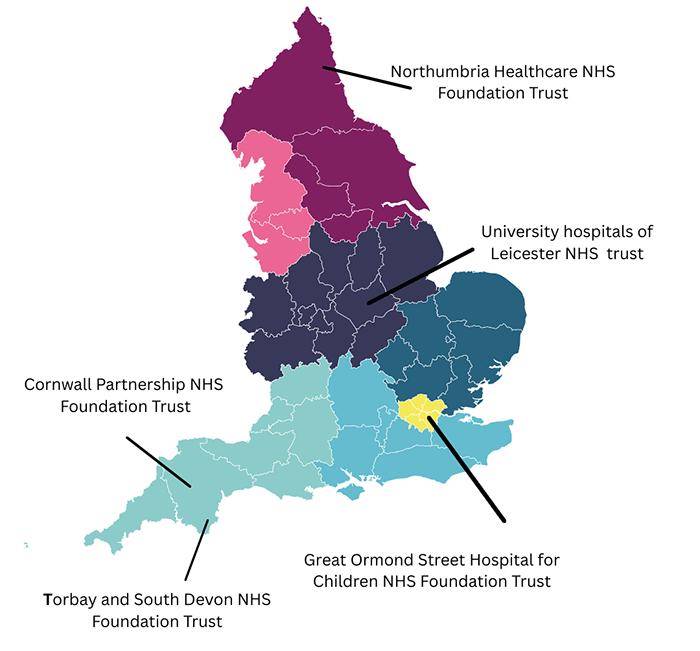The below job description outlines the structure and expectations for the 3-year scheme. Specific details for each role can be found on the next page.
Job title:
Graduate Estates Engineering Trainee
Accountable to:
Dependant on Organisation
Post length:
3-years fixed term
Location:
Dependent on Organisation
About the role
The NHS Estates Graduate Training Scheme offers a unique opportunity for engineering graduates to develop a rewarding career within the NHS Estates teams across England. As a Graduate Estates Trainee, you will rotate through various NHS organisations and departments, gaining hands-on experience across a range of engineering disciplines critical to healthcare environments.
This three-year programme is designed to equip you with the skills, knowledge, and practical experience required to maintain and improve NHS properties and facilities. The NHS Estates Engineer Graduate Scheme shall focus on the delivery of Engineering Services within the "hospital” environment, utilising the individual’s engineering knowledge and skills to deliver services across singular or multiple areas including but not limited to;
- Building Services. overseeing the installation and maintenance of systems within buildings, including lighting, lifts, communications, and security
- Medical Plant & Equipment, maintaining and managing medical equipment in operating theatres, intensive care, neonatal units, accident & emergency, or radiology.
- Mechanical, Electrical and Plumbing (MEP), making sure that water supplies and drainage, electrical systems, boilers and alarms are working well within NHS buildings.
- Heating, Ventilation and Air Conditioning (HVAC), making sure all hospital areas are safe to use and kept at the right temperature, for example to keep patients warm, or vital supplies cool.
The programme is suitable for all graduates who have gained a 2.2 or higher in an engineering related degree. The graduate scheme is a 3-year commitment and offers successful candidates the following opportunities:
- Employed by an NHS organization across England
- Experience a minimum of 2 x rotations
- Technical skills development via Level 6 Leadership & Management Professional Apprenticeship
- Personal development opportunities through the Skills Development Network
- Pastoral support through mentoring
- Probable progression from NHS band 5 to band 6/7, on successful completion.
The role of the Graduate Estates Trainee (Engineering) will be to assist the engineering team at the employing organisation. The aim is for you to observe and learn the engineering processes and the various practices and procedures that are in place. Engineers in the NHS maintain and repair a range of equipment and facilities from ambulances to dialysis machines to air conditioning units.
The Post Graduate Engineer Standard will be critical in meeting the sector’s future skills needs. They will work in an area that covers a wide range of generic engineering disciplines which could include for example: integrated systems, mechanical, electrical, electronic, electromechanical, fluid power components/systems and materials. All are vital to a high-quality NHS. The work is varied, rewarding and challenging.
As part of the engineering team, you will provide assistance to all levels of engineering professionals within the team and you will be experiencing various areas on a rotation basis.
As an estates engineering trainee, you will be involved in maintaining NHS properties.
This may include:
- Buying and selling of property
- Organising repairs and maintenance
- Project managing building and renovations
- Making the NHS more sustainable
- Developing policies
- Recruiting and training staff
- Managing absence and discipline
- Controlling budgets
The roles available are based throughout England working in various NHS organisations. Applicants may apply for up to four of this positions. For more information about these organisations please read their Organisation & Post descriptions.
Benefits we would like to promote
- Making a positive difference to the communities the NHS serves
- Job variety to develop and hone a range of abilities
- Full pastoral support throughout your time on the graduate scheme
- Access to Staff engagement networks
- Access to our generous Pension Scheme
- 27 days annual leave plus bank holidays
- Staff Recognition Awards- These awards celebrate the individuals and teams who help us to deliver our objectives, champion our values and make the NHS a better place to work
- Additional opportunities for growth and development
- Access to NHS Discounts schemes
- Diversity in the workplace
Our Policy
We aim to create a healthy and high performing organisation, underpinned by the NHS Constitution values:
- working together for patients. Patients come first in everything we do
- respect and dignity. We value every person – whether patient, their families or carers, or staff – as an individual, respect their aspirations and commitments in life, and seek to understand their priorities, needs, abilities and limits
- commitment to quality of care. We earn the trust placed in us by insisting on quality and striving to get the basics of quality of care – safety, effectiveness and patient experience right every time
- compassion. We ensure that compassion is central to the care we provide and respond with humanity and kindness to each person's pain, distress, anxiety or need
- improving lives. We strive to improve health and wellbeing and people's experiences of the NHS
- everyone counts. We maximise our resources for the benefit of the whole community, and make sure nobody is excluded, discriminated against or left behind

